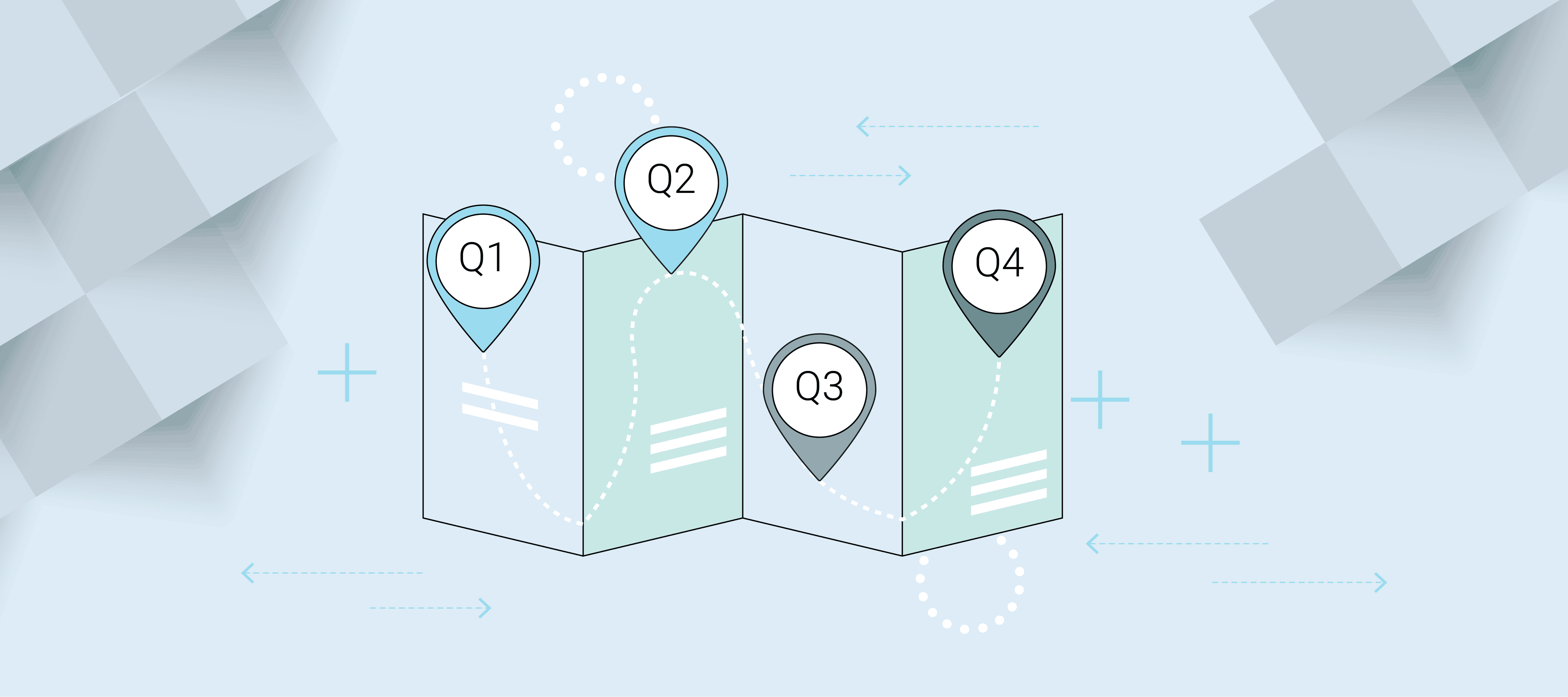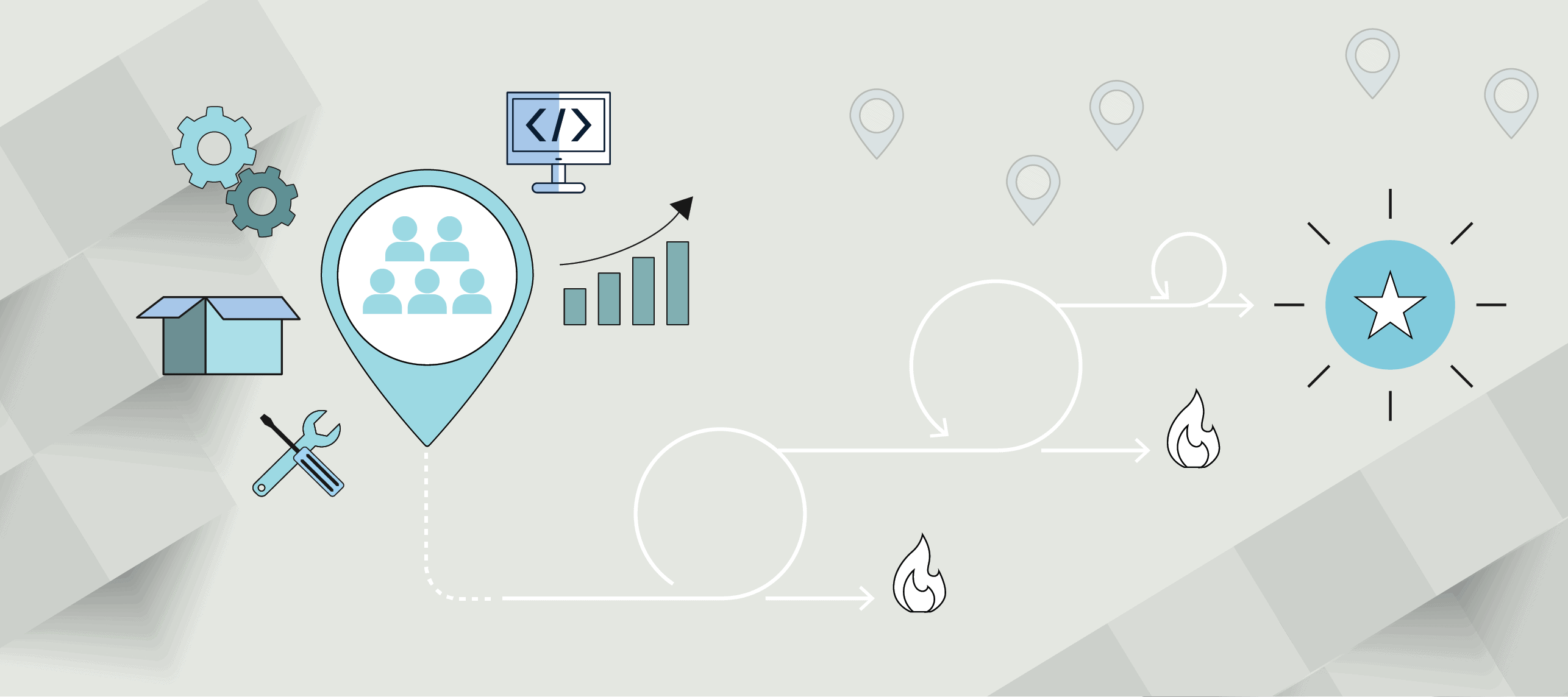4-minute read
Competitive intelligence provides businesses with valuable insights into their competitors and markets. Corporate counterintelligence can help you safeguard information and protect your company.
Businesses can gather competitive intelligence about competitors and their overall market legally and ethically. However, defending your business against illegal or unethical information-gathering practices is important. That’s where corporate counterintelligence comes in. Anyone in your company can use common-sense best practices to safeguard your trade secrets and support long-term business strategies.
Keep reading to learn more about competitive intelligence and effective corporate counterintelligence strategies. You can also skip to the section you’re most interested in:
- Defining competitive intelligence
- How does competitive intelligence work?
- Defining corporate counterintelligence
- Corporate counterintelligence strategies
What is Competitive Intelligence?
Competitive intelligence refers to the practice of gathering, analyzing, and using information about a business’s competitive environment. That information might be about competitors, customers, or the broader market influencing a business’s success. This involves gathering information from a variety of public and proprietary sources.
Competitive intelligence helps businesses understand their competitive environment and make informed business decisions. The term competitive intelligence may be used interchangeably with the term corporate intelligence.
How does competitive intelligence work?
Companies that compete against yours seek a competitive edge. Building a deep enough understanding of your company can help them outperform you, preempt or neutralize your initiatives, emulate your successes, and take advantage of your weaknesses. Taking a structured approach to competitive intelligence is best by mapping the competitive landscape, prioritizing areas of interest, and systematically collecting and analyzing data.
Your competitors can gather competitive intelligence through activities such as:
- Passively monitoring public sources, such as public company announcements
- Gathering data from secondary sources, such as industry reports or subscription databases, for business activity and significant changes
- Actively gathering and collating additional information by engaging third-party agencies,
- Investigating with sources, such as customers, partners, and employees who are familiar with the competitor company
- Attending company events, such as annual conferences or product releases
Good competitive intelligence is like a puzzle. Skilled competitive intelligence researchers gather data about a company. They assemble and triangulate these points until an accurate understanding of the company’s nonpublic, proprietary insights can emerge, provide valuable insights, and potentially expose a company to risk. For instance, a competitive intelligence researcher might sit in a coffee shop their competitors’ employees frequent. If the researcher overheads an employee conversation about an impending company downsizing, the researcher can pair that overheard information with available data to gather new insights about the competitors’ position in the market.
What are the types of competitive intelligence?
There are two primary types of competitive intelligence: tactical and strategic. Tactical competitive intelligence is a short-term approach that gathers data to increase market share or profits. This helps to achieve short-term business goals. Strategic competitive intelligence synthesizes data to identify critical risks or opportunities within the larger competitive market. This helps to inform long-term business goals and strategies.
Business intelligence should focus on gathering competitive intelligence data from various competitors and market forces and monitoring competitor products throughout their life cycle. It should also be updated regularly, particularly as market conditions change.
Ethical considerations in competitive intelligence
Companies should gather competitive intelligence legally and ethically. However, it is possible that companies intentionally or unintentionally gather competitive intelligence illegally. Illegal intelligence gathering might include intentional actions such as pretexting, misrepresenting their identities, or practicing bribery, coercion, or theft. Companies may unintentionally gather competitive intelligence illegally by paying for third-party reports where the third party gathered data illegally. Remember that even if your company has high standards for gathering competitive intelligence ethically and in compliance with the law, not all companies adhere to those high standards.
Therefore, employees should stay vigilant and enact strategies to safeguard their proprietary information against incoming competitive intelligence.
What is Corporate Counterintelligence?
Corporate counterintelligence safeguards your company’s sensitive or proprietary information against unauthorized access or theft. Vigilance is key. Even if you are unaware of the value of proprietary information or don’t actively manage access to it, you can make your company vulnerable to competitive intelligence efforts from competitors. You undermine your company’s success when you are unaware of the value of the proprietary information you possess and don’t actively manage external access to it.
What is the difference between competitive intelligence and corporate counterintelligence?
Simply put, competitive intelligence is gathering and analyzing your competitors’ information. Competitive counterintelligence is about safeguarding your data and preventing competitors from completing competitive intelligence efforts targeted at your company.
Corporate Counterintelligence Strategies
Legal or otherwise, intelligence-gathering techniques continue to grow in sophistication and volume. Ultimately, it’s your responsibility to protect your company’s information and its competitive edge.
You and your peers can execute sound counterintelligence by recognizing the signs of potential intelligence-targeting activity, recognizing risky situations, and taking protective steps.
Common signs can indicate that someone is gathering competitive intelligence about your company. Use caution when inquirers conduct activities such as collecting information for a survey or undisclosed client or fact-checking for a publication or presentation. In particular, watch for inquiries from:
- Market researcher or management consultant
- Recruitment specialists
- Students conducting research
- Potential job applicants
- Personal contacts (especially distant ones) who take a sudden interest in your work or company
- Prospective clients asking intrusive questions about your company
Additionally, you are more likely to expose proprietary information in public locations outside your own offices. Among others, be mindful of what you share in places such as:
- Professional networking events
- Industry conferences
- Tradeshow venues
- Public transit, especially when you are traveling to or from events or conferences
- Hotels
- Coffee shops
- Restaurants
Corporate counterintelligence requires support at the company level. Senior management or legal teams should help to reinforce what constitutes confidential, proprietary information that should never be shared. Sensitizing non-employees (e.g., channel partners, solution providers) to the severe bottom-line consequences of leaking sensitive information is crucial.
Your company may also hire a trusted third-party partner to train cross-functional teams on counterintelligence-awareness programs, facilitate role-playing with data-elicitation techniques, or stage a “red team” attack to identify areas of data leakage in your organization. Then, educate affected parties about how to prevent future leaks.
Summary
At its most effective, corporate counterintelligence fosters a culture of mindfulness across your organization and company. Your role may uniquely expose you to risky intelligence situations, mainly if you are a product management or marketing professional. However, you also have an opportunity to protect your company—and remind your colleagues to do the same. Responsible gatekeeping of your company’s proprietary information starts with you. Use your influence to ensure it doesn’t stop there.
Authors
-

Marc Limacher, a veteran with 36 years of experience, is a sought-after authority in competitive strategy, strategic intelligence, and competitive intelligence. With a rich career that includes contributions at RCM and Inovis, Inc., Marc's expertise is marked by a deep understanding of the competitive landscape. For questions or inquiries, please contact [email protected].
View all posts -

Kathleen Dean, with 23 years of expertise, excels in business development, strategic client relationship management, and marketing communications. She has contributed significantly at CoCreate Software, HP, and Hewlett Packard Enterprise. Kathleen's commitment to fostering impactful client relationships, positions her as a seasoned professional in driving business growth and effective communication strategies. For questions or inquiries, please contact [email protected].
View all posts








